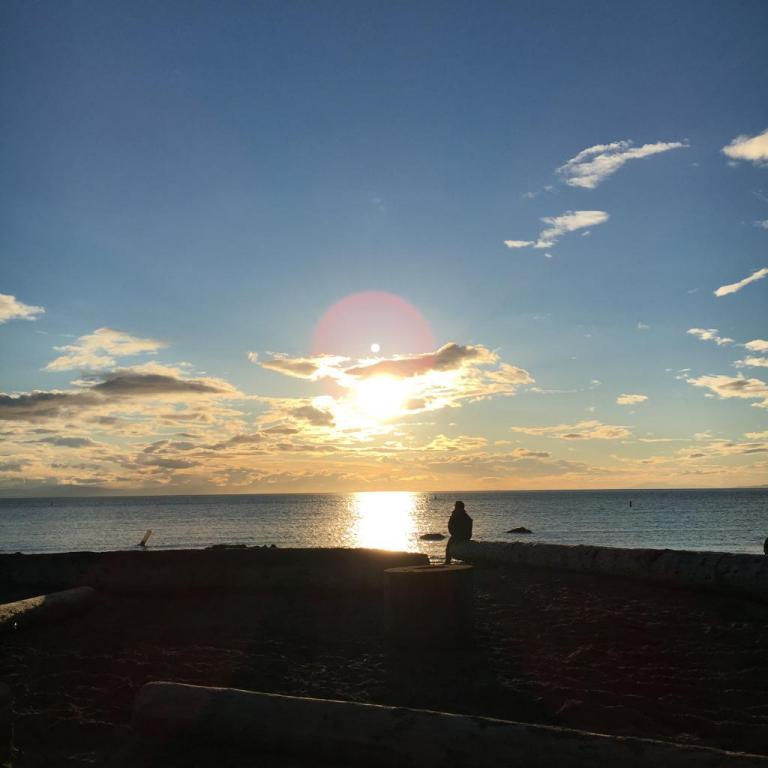What's in your Kit? Joey, Undergrad Student.
1. When do you need mindfulness?
Mindfulness is something that comes up on a daily basis for me. As a full time University student, balancing my time is one of the most difficult things. Sometimes I find myself so caught up that I forget to actually sit down and think more than what I have to do today. I think this applies not only to me, but to everyone. It is so easy to lose track of your well-being that once the stress overloads, it becomes hard to manage. So Mindfulness is a proactive measure for me to keep my composure during both normal and overwhelming moments.
However, Mindfulness, unlike the idea it initially gives, can really be anything. It doesn’t have to take a lot of time or be in specific place, all it has to do is give you a break from whatever is consuming your mind.
2. What’s in your mental health/mindfulness toolkit in real life?
Although practicing Mindfulness steps that work well for me is an ongoing effort, my main focus has come down to two steps. (These two steps are moreso a judgemental practice that can help you to find your own Mindfulness routine.)
-
Not denying your struggles:
-
I believe this is a huge reason why people feel so frustrated and tense when they are going through struggles. It is okay to acknowledge that whatever you are going through is burdensome and difficult. Pushing that overwhelmingness to the side won’t help matters, and moreover could worsen things. Once you let go of the notion that you must overcome this by yourself, you are free from your own expectations, perhaps the heaviest burden of all. What you feel is valid.
2. Try Something:
-
I know how much I cringe when people say things like “Do something that takes your mind away from it,” because quite frankly it doesn’t work like that. Whatever consumes you, stays on your mind throughout the day. But the value that I’ve found in that axiom is to busy your body, to busy your mind. Trying to decrease the space that negative thought takes up in your mind is the most important thing. It won’t go away, and you’ll still feel it, but it won’t be the only thing on your mind.
3. What’s in your online toolkit?
Although I do not have a specific online toolkit/routine, I do have a few resources that I always come back to when I want to regain my composure and peace. I like to play classical music, especially Debussy, and play other therapeutic nature sounds such as thunderstorms, or rain forests. I’m not quite sure what the psychological effect of this is, but through the auditory stimulation I’m able to slow down and declutter my mind. Or if that doesn’t work, I usually listen to podcasts of the topics I am currently struggling with. It really helps you to think objectively when you listen to other people talk about the subject of your struggle in their perspective. Again, by externalizing your struggles, you are now in a process of detox.
1. Debussy: https://www.youtube.com/watch?v=OUx6ZY60uiI
2. Nature sound: https://www.youtube.com/watch?v=8myYyMg1fFE
3. “The Minimalists” Podcast: http://www.theminimalists.com/001/
4. What part of mindfulness is easiest for you?
-I think like most initiatives, once you are able to start something, everything can be streamlined. Mindfulness can feel intimidating or ineffective to start, but once you can reach that place of comfort, you can let go of yourself to ‘auto-pilot.’ Also, the more you practice mindfulness, the more you can utilize it at any given time or place.
5. What part of mindfulness is hardest for you?
-Although I primarily use mindfulness as a tool, I really believe that in essence mindfulness is a state of mind. How we use mindfulness is completely up to ourselves, but if I approach things in a grateful and composed manner, I wouldn’t have to use mindfulness as coping measures. So I really try to always remember to use mindfulness as preventive measures and as a state of mind. It’s hard to do, but the benefits far outweigh the occasional reliance of mindfulness.


